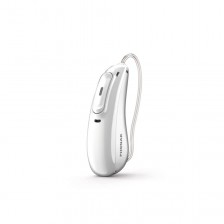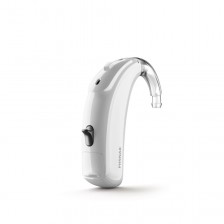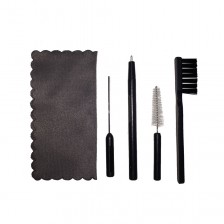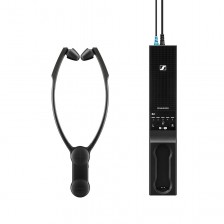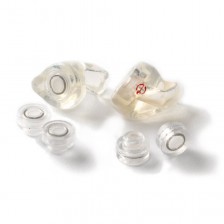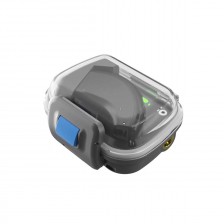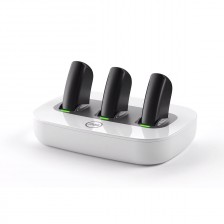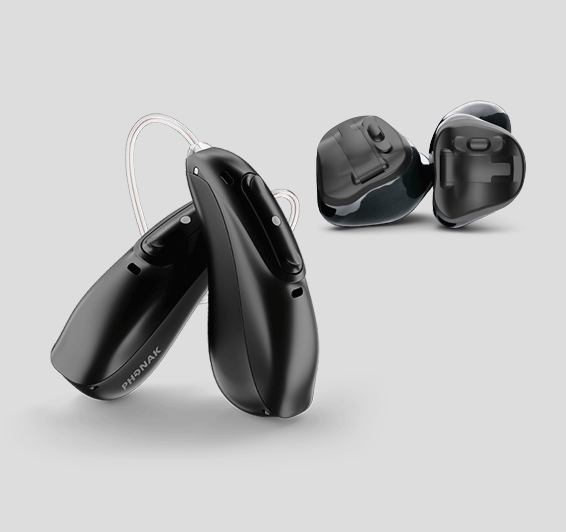Serous otitis: causes and treatment


Serous otitis is a very common disease in children. Sometimes it is completely asymptomatic, while other times it is accompanied by an infection that can cause hearing problems. At certain stages of the child's life it may also lead to problems in language acquisition and other learning related problems.
You may have noticed this already. At every medical check-up for your child, the paediatrician spends a few minutes on his or her ear. This is normal and necessary because early detection is what makes it possible to arrive in time to prevent serous otitis from developing. And by the way, this infection is also known as the "invisible enemy". We said it at the beginning: it neither hurts nor wakes up the fever, but only for a while. In the meantime, what does happen is that changes are caused in the child's development and the perception of sound is altered, affecting the auditory and phonetic areas, making it difficult for the child to learn and pay attention.
What is serous otitis?
Serous otitis is an accumulation of fluid in the middle ear. It usually does not lead to infection and is therefore not accompanied by fever or any kind of pain. It may seem like an advantage, but it is not. We say this because as it does not carry any symptoms it is sometimes complicated to diagnose that something is happening.
In fact, it is a type of otitis media, also called secretory, due to the presence of a fluid in the middle ear. In most cases, it is an excessive secretion as a consequence of a cold that produces this mucus in the ear. Therefore, it is a condition linked to the coldest months of winter and, as a curiosity, it tends to occur more frequently in boys than in girls, although its origin is due to multiple factors. One of them, for example, is that there is little ventilation between the ear and the nasopharyngeal structures, which makes it difficult to evacuate the mucus that is retained in the middle ear. A trigger is a hypertrophy of the tonsils as well as certain structural features of the Eustachian tube. Only in the most severe cases can a tympanic perforation occur as the mucus drains through the eardrum.
So how is it diagnosed? Examination of the ear with a microscope is essential but is completed by an infant audiometry (when the child is less than 6 years old) or by a normal audiometry in older children.
In fact, in many cases the only symptom is hearing loss. In the case of adults, they can perceive what is happening, but in children it is more complicated to detect.
What causes serous otitis?
Behind serous otitis lies a major cause, the overgrowth of vegetations. This results in the blockage of the Eustachian tube, which is responsible for removing mucus from the ear so that it does not accumulate. If the ear is occupied by seromucosal secretions it cannot develop its functions normally.
What is the best treatment for serous otitis?
It is important for both children and adults to see a doctor if a hearing or ear problem is thought to exist. The ear specialist will be able to diagnose the specific origin of the problem and decide on the best treatment. Let's stay with the important thing: serous otitis is not a serious disease. In fact, with an antibiotic and anti-inflammatory treatment it remits the acute infection.
Sometimes certain treatments can be prescribed to reduce the secretion of mucus. The other option is to implant transtimpanic drains, which are small tubes to eliminate the mucus. It also prevents it from building up again.
What are the peculiarities of serous otitis in children?
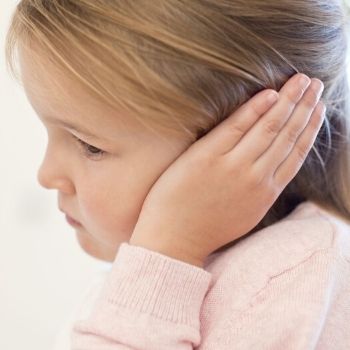
It is important to bear in mind that if serous otitis occurs in children, one must be aware of possible complications. As we have mentioned, it is difficult to diagnose the problem in principle, because the child usually does not manifest that he or she has lost hearing. Furthermore, it will take some time for the parents to realize what is happening. A child with the onset of serous otitis will have problems with attention, sound localisation, difficulty in initiating and developing language, especially pronunciation and word formation.
A child who does not hear well will have different difficulties related to learning. The main one is the correct development of language, especially when the problem occurs in the early years. Every precaution is more than justified.
The important thing is that whenever you have any problem related to the health of your ears you should go to the doctor, only an otolaryngologist will be able to treat what is happening.
